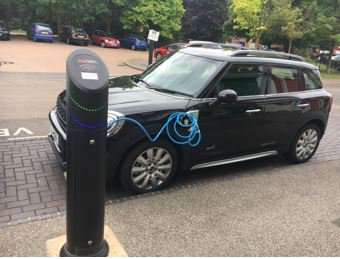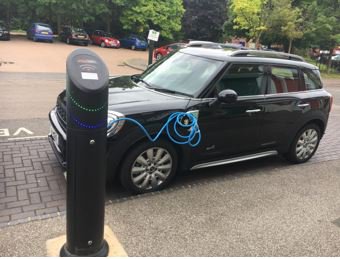(REPOST: Petroleum Economist)
Two of the main European players have taken their first steps into the market and can be expected to beef up their offerings in future, as can petrol station operators around the world, as EVs rapidly gain market share from California to Guangdong.

Last October, Shell said it was opening installing recharging units on some of its UK petrol station forecourts and also bought Amsterdam-based NewMotion, one of Europe’s largest specialists in smart-charging facilities for homes, businesses and parking lots.
Now, its BP’s turn, as the supermajor unveiled a $5m investment in FreeWire, a US firm, which makes mobile fast-charging units for EVs, with a view to installing them on retail forecourts in the UK and more widely in Europe. The investment is modest and the roll out will be limited to trial sites to start with, but the company acknowledges that this is a business it can’t ignore.
“Mobility is changing and BP is committed to remaining the fuel retailer of choice into the future. EV charging will undoubtedly become an important part of our business, but customer demand and the technologies available are still evolving,” Tufan Erginbilgic, chief executive of BP Downstream, said.
Uncertainty over the pace at which the EV market will expand and where charging technology should be employed is a headache for downstream firms. They don’t want to spend vast sums on infrastructure, which could end up in the wrong place and underused at this early stage of the game.
As a remedy to that threat, the FreeWire product makes sense for BP, as its size and mobility—the charger is basically a big box on wheels—means it can be deployed wherever there is demand, with minimal need for fixed infrastructure. BP is also exploring possibilities for using the chargers away from its retail sites.



